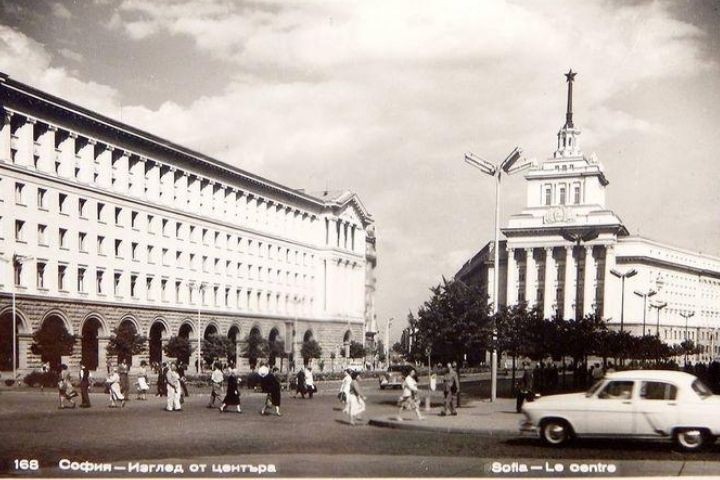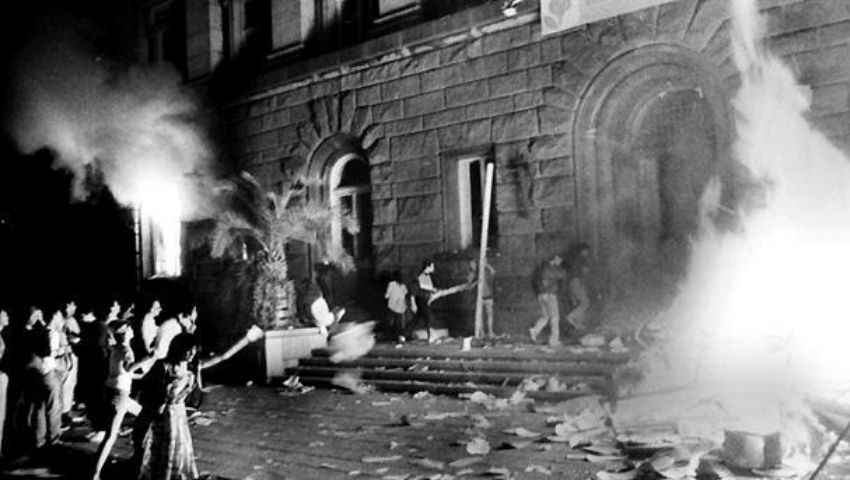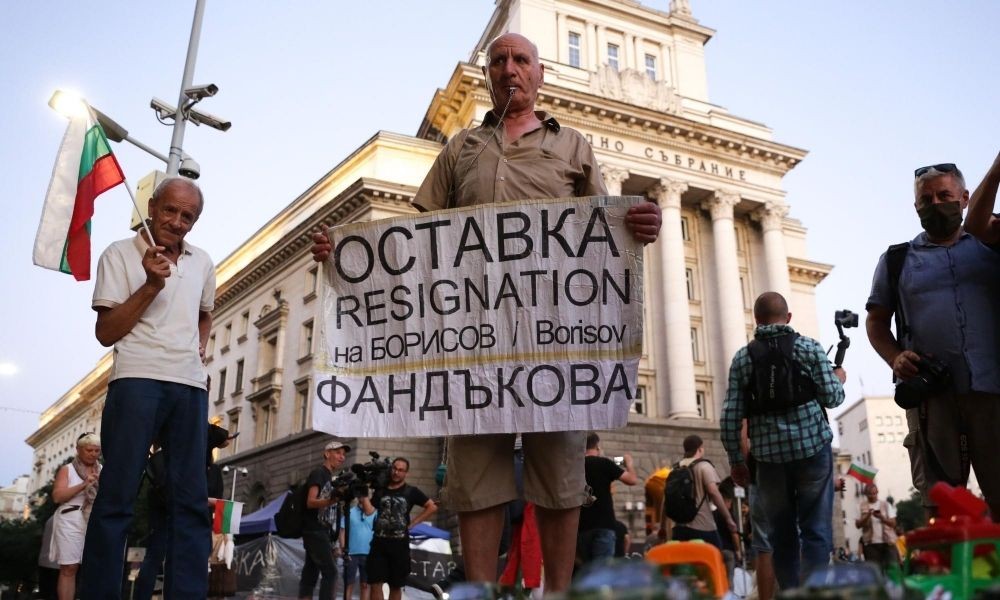August 26, 1990 remains forever in the history of Bulgaria with the arson of one of the symbols of power in the country – the building of the former Communist Party House. Ten months after ousting communist leader Todor Zhivkov, citizens were hoping for quick and substantial changes to bring the country out of 45 years of communist rule. In the summer of 1990, parliament decided to remove all socialist symbols from public buildings. Among them was the ruby five-pointed star on top of the party headquarters. MPs from the renamed on April 3, 1990, Bulgarian Socialist Party (BSP), agreed to remove the symbol, but were in no hurry to implement the decision. It was this reluctance that brought angry crowds in front of the building, and one of the protesters threatened to set himself on fire.

Of course, this was just one of the reasons behind the events. After November 10, 1989, Bulgarians learned about the repressions in the prison camps of the old regime. The country was in a severe financial crisis. However, the elections for the Grand National Assembly in June 1990 were won by the BSP. The draft of a new constitution was opposed by the democratic opposition. Unexpectedly, during the evening protest on August 26, 1990, flames from inside the building engulfed 40 rooms. Today, 30 years later, arson case №53 has long been dropped and forgotten and the perpetrators remain unknown.

Film director Evgenii Mihailov defines the arson as intentional, organized by the BSP or by circles related to the State Security. The fact that the investigation failed to shed light on the truth shows that it felt uncomfortable, says documentary filmmaker Malina Petrova. In 2009, she screened her film "Priklyucheno po davnost” (Statute of Limitations), based on an in-depth study of the arson case documents.
“This is not just a film about a fire at a party headquarters, this is a film about our unfortunate transition,” Petrova said in an interview with Dnevnik newspaper. "I dedicated many years of my life to understanding the truth. I have read a mountain of documents; I have reached the sources, the facts before they were replaced; I have followed the stages of manipulations and I can responsibly say that they are afraid. With good reason, because anger will be terrible when people realize the truth; it will flood them and drown them."
What part of the documents of the government stored in the Party House were taken out and destroyed in advance, or burned in the fire, remains a mystery. But "one thing has been indisputably proven," former MP and municipal councilor Prof. Vili Lilkov said in an interview with Bulgaria On Air TV.

"The first months after 1989 were actively used by State Security officers whose task was to destroy or misappropriate the archives of the service. Another truth is that in the building of the Party House many of the archives of the Ministry of Interior were stored and their traces have also been lost.”

These days, the former Party House, built in the period 1950-56 as part of an impressive architectural ensemble, is once again being a silent witness to protests. Citizens once again call for rule of law and a different Bulgaria that they want to live in. After the end of the parliamentary vacation on September 2, MPs will be able to hear calls of protesters more clearly, because the sittings of the National Assembly will be held on Dondukov Blvd. The building has been renovated and the renovated plenary hall now bears the name of St. Sophia – the Holy Wisdom of God.
Compiled by: Yoan Kolev
English: Alexander Markov
Photos: Ani Petrova, archive, Old Sofia, Radio Sofia, BGNES
The Bulgarian Archaeological Society 'Ivan Venedikov' issued a statement addressed to Patriarch Daniil, in response to his recent public call to end the centuries-old tradition of fire dancing, known as Nestinarstvo. "Mr. Patriarch, do not touch..
Every tree has roots. The bigger the tree, the deeper its roots. We are all united here in Southeast Europe. It is our saints that unite us, not divide us. This was stated in an interview with Radio Bulgaria by Prof. Konstantinos Nichoritis. A graduate..
Metropolitan Arseniy of Sliven has spoken out against the nestinari (fire dancers), prohibiting them from using icons during their rituals. This announcement was made on the Sliven Metropolis's official website and Facebook page. In his statement,..
A gold coin minted during the reign of Emperor Justinian I, ruler of the Eastern Roman Empire, was discovered during excavations at the Tuida Fortress..

+359 2 9336 661
